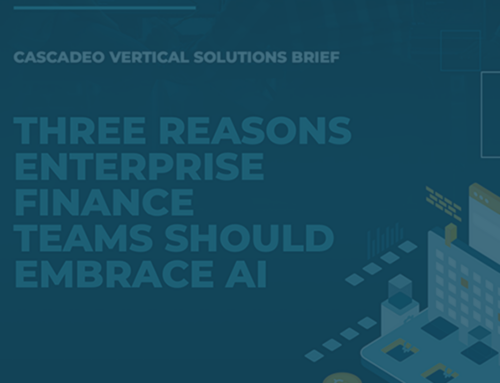
Cloud data governance can seem complicated, but it doesn’t have to keep you out of the cloud. Your data can work smarter, not harder, in the cloud, with a few careful considerations and some expert help along the way.
Build a Data Governance Policy That’s Coherent, Comprehensive, and Flexible
 Data is the future of business. It’s also the source of an enormous well of anxiety and frustration. Data security and regulatory compliance have to be first principles in any modern organization, but your use of data and your policies governing that use impact your company well beyond liability factors. A quick Google search reveals the depth of customer angst around data collection and usage; your relationship with data is key to your reputation. Trepidation about data governance, in turn, becomes a significant limitation on many companies’ efforts to modernize, constituting a barrier to cloud adoption.
Data is the future of business. It’s also the source of an enormous well of anxiety and frustration. Data security and regulatory compliance have to be first principles in any modern organization, but your use of data and your policies governing that use impact your company well beyond liability factors. A quick Google search reveals the depth of customer angst around data collection and usage; your relationship with data is key to your reputation. Trepidation about data governance, in turn, becomes a significant limitation on many companies’ efforts to modernize, constituting a barrier to cloud adoption.
Because on-prem environments are familiar, some aspects of data governance in those configurations are, as well. When your data’s location is on-site, compliance with regulations like the EU’s GDPR, which ties compliance to data location, seem simpler than a diversified data storage deployment. One of the advantages of cloud—multiple data sites that improve accessibility and resiliency—begins to look like a liability in this light, unless your cloud transformation or modernization is conducted and managed by experts who can help guide your cloud data storage decisions and conduct periodic checks to establish and maintain regulatory compliance. The cloud as a concept can seem nebulous, but the specifics of data storage can, and should, be a closely controlled aspect of your cloud deployment.
While compliance can be an intimidating aspect of cloud data governance, it only represents one aspect of your data governance program. Data security concerns can also serve as barriers to cloud adoption. But as we discussed in a recent post, your data is likely to be more secure in a well-built cloud than on-prem, with cloud native features like advanced access controls letting only the right people in, automation reducing the human error that accounts for the vast majority of security breaches, and a DevSecOps approach to prioritize security throughout development and operations processes.
Other key areas of data governance, such as availability, usability, and consistency, are dramatically improved in the cloud. Built-in redundancy across virtualized servers assures failover and eliminates outages driven by natural disasters or other geographically-specific events. Sophisticated remote work and access management tools allow your teams to access and use data from anywhere, in real time, in any time zone. Composability allows changes in applications that access and process data without impacting the data itself or other apps along the way. And because cloud vendors offer scalable, practically unlimited data storage and analytics options, you can do more with your data in the cloud than in any other type of deployment.
The most important consideration of data governance, regardless of your data’s location or usage, is building a coherent, comprehensive policy that is flexible and aligned to your business’s goals and principles. Gartner recommends a model built on seven key foundations for data and analytics governance, constructed around your values and outcomes, and emphasizes adaptability to allow you to incorporate new data scenarios as they arise. AWS, Azure, and GCP offer data governance guidance and tools, as well. Avoiding multi-cloud deployments, which considerably complicate cloud governance, and partnering with a managed service provider that offers advanced monitoring and compliance reporting also help simplify the process. All of this should come together to protect your investment in your data program and allow you to maximize its impact for your operations and your customers.
Whatever data governance policy and process work best for your business, data governance concerns don’t have to keep you out of the cloud. With careful consideration and expert guidance, your data can do more, while staying safe and performing as a function of your business goals and values.




